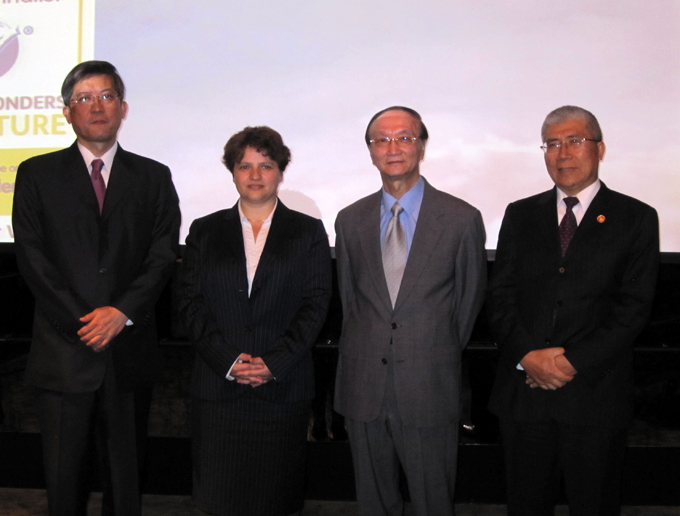Taiwan-Israel Mutual Visa-waver Program to Boost Bilateral Relations
2011/11/08 | By Quincy LiangRelations between Taiwan and Israel were further strengthened when a mutual visa-waver program between the two went into effect on Aug. 11. Taiwanese passport holders may now enter Israel visa-free for stays totaling up to 90 days (including multiple stays) within 180 days of the first date of entry. Israeli passport holders are afforded the same privilege in Taiwan.
At a recent celebration to mark the inauguration of the visa-waver program, Simona Halperin, representative of the Israel Economic and Cultural Office (ISECO) in Taipei, said, “Today’s activity is not a press conference but a chance to celebrate the friendship and partnership between Israel and Taiwan.”
Halperin has been vigorously promoting relations between Taiwan and Israel since taking up her post in August last year, hoping to broaden the scope of bilateral interchange.
During his remarks at the event, Lin Jinn-jong, director general of the Ministry of Foreign Affairs’ (MOFA’s) Department of West Asian Affairs, noted that Taiwan was the 55th country to enjoy visa-waver treatment in Israel, and that “due to the special realities, it’s not easy for Israel to allow people in without a visa.”
Lin said that Taiwan and Israel share many characteristics, including the fact that years ago, along with South Africa, they were among the few countries that were politically isolated from the global community. He thanked ISECO for its efforts to bring the visa-waiver program to reality, and expressed a hope for more frequent bilateral cultural, artistic, business, and tourism exchanges.

Charles Teng, former representative of Taiwan in Israel, thanked both current Israeli representative Halperin and former representative Rafael Gamzou for bringing the two countries closer together. The visa-waver program, he said, would surely enhance practical connections and interactions, and would boost mutual understanding between the two sides.
Ronnie Bar-On, member of Israel’s Knesset (parliament) and former minister of the interior, led a group of five Israeli parliament members on a visit to Taiwan. He remarked, during the celebration, that the “Israeli-Taiwan relationship has been most popular in the Israeli parliament for a long time, and the visa-waiver program is expected to further enhance exchange and interaction between the two nations.”
To illustrate the benefits of the visa-waiver program, he cited the example of the former Soviet Union; when Israel extend visa-waiver privileges to the Soviets, the number of Soviet arrivals soared from 100,000 to some 600,000 in just a year or two. The implications for Taiwan’s tourism industry are obvious. “Israeli youngsters love traveling,” Bar-On said, “and I see no reason why they won’t come to Taiwan in the future. I’ve already sensed a big potential for future two-side interaction.”
Trade between the two sides has been growing steadily, even during the global recession, with the value of two-way trade reaching about US$1.5 billion in 2010. According to the MOFA, Taiwanese companies have invested US$200 million in Israel.
Ophir Gore, ISECO’s director of economic affairs, reported that bilateral trade is continuing to grow, reaching a record high amount in the first half of this year. With the visa-waver program, he said, “We have confidence that the value will double soon.”
Israel is the first country in the Middle East to offer visa-free entry to Taiwanese passport holders. Jordan, Oman, and Bahrain, however, give landing visas to Taiwanese citizens.

